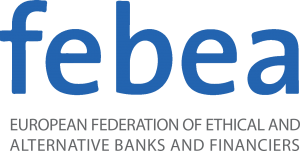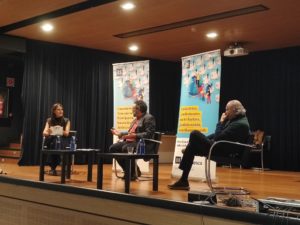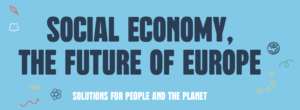- 20 YEARS OF FEBEA. ETHICAL FINANCE IN EVERYONE’S BEST INTEREST.
- FEBEA – 20 YEARS OF ETHICAL FINANCE STORIES IN EUROPE
- FEBEA TOLD BY ITS FOUR PRESIDENTS
- FEBEA’S HISTORY
- THE EVOLUTION OF ETHICAL FINANCE IN EUROPE
- ETHICAL FINANCE: MUCH MORE THAN SUSTAINABLE
- ETHICAL FINANCE EXPERIENCES: CITIZENS MONEY AT THE SERVICE OF SOCIETY
- 20 YEARS IS NOTHING, WHEN IT COMES TO ETHICAL FINANCE
- CRISE SANITAIRE: UN DEFI POUR LA FINANCE ETHIQUE
- HEALTH CRISIS: A CHALLENGE FOR ETHICAL FINANCE
– Read this article in Spanish on Valor Social and in Italian on Valori –
By Valentina Neri
FEBEA told by its four presidents
In its twenty years of history, FEBEA has gone through many changes. Four global crises (from September 11 to Covid-19, passing through the global financial crisis and the Greek one), a European Union that grows and strengthens, sustainability that finally rises to the top of the list of priorities for companies, institutions and citizens. In the midst of these and other revolutions, FEBEA’s task has always been to support a more just, supportive, local economy. Keeping the bar straight to prevent the very concept of “ethical finance” from being watered down, losing strength and meaning. Who can tell this journey better than those who have experienced it firsthand? So let’s give the floor to the four presidents who have followed one another over the years: Jean Paul Vigier (2001-2007), Karol Sachs (2007-2011), Fabio Salviato (2011-2017) and Pedro Sasia (from 2017 onwards).
How was FEBEA born and with which objectives?
Jean Paul Vigier. In 2000, when I proposed to Caisse populaire du Nord-Pas-de-Calais, Hefboom, Credal and Banca Etica to meet, I had in mind the experience of Finansol, in France, and the guarantee system created in Latin America to support solidarity banks. I thought that the European organizations of ethical and solidarity finance could join forces to equip themselves with common tools for their development. This idea was accepted. Given that the euro was about to become the single currency, it was necessary to confront the European authorities and, possibly, the European Central Bank. At the time, the establishment of a solidarity and ethical banking institution that would bring together future members was a utopian hypothesis. It was therefore opted for a Federation that became FEBEA.
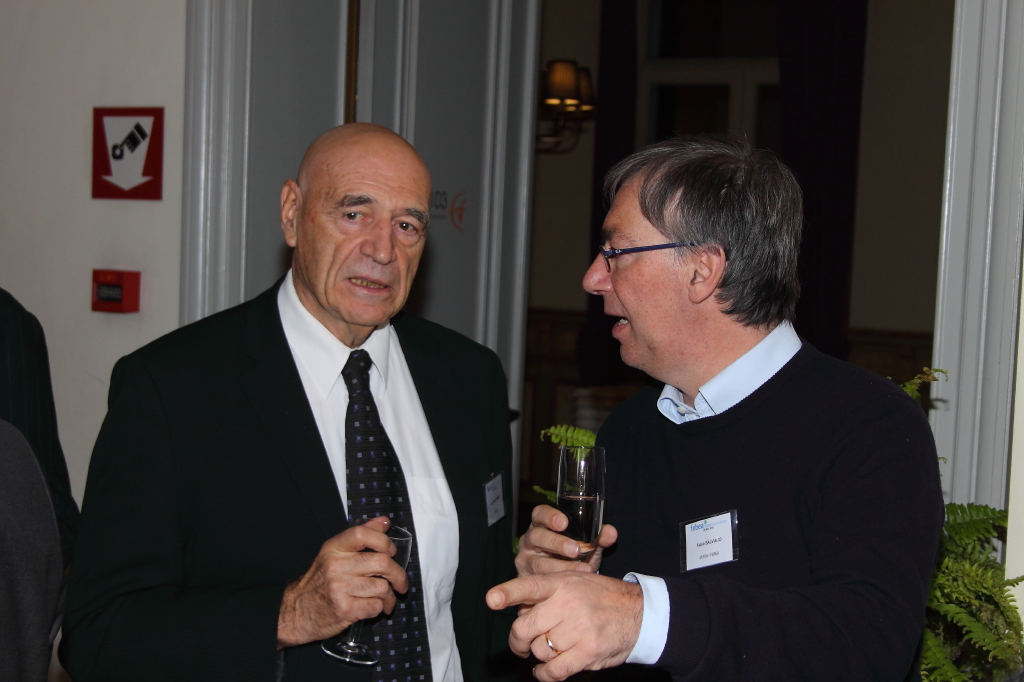
FEBEA saw an increase in members in the early years, after which it was decided to limit the expansion of the network and instead focus on the very concept of ethical finance and the membership procedure. Why?
Karol Sachs. On the one hand, Credit Coopratif wanted FEBEA to be a partner of the European Commission. To do so, it was necessary to have members in half of the EU countries plus one: at the time, at least ten were needed, while today there must be about fifteen, because there is also Eastern Europe. On the other hand, from the beginning the partners were very heterogeneous. Credit Cooperatif is a very large institution, while BISE (later TISE, ed), Caisse Solidaire, La Néf, Hefboom, Banca Etica and Credal were much smaller than today.
Jean Paul Vigier. The diversity of members was such that it was necessary to get to know each other better and organize themselves before welcoming too many organizations.
Karol Sachs. There has always been a “stop & go” mechanism in the history of FEBEA. In the beginning, to exist it was necessary to be numerous but, the more one is, the more difficult it is to understand each other. FEBEA was born during the crisis of 11 September 2001, then there were those of 2008 and 2020. Each time we adapted and proposed new ways of functioning.
Pedro Sasia. With the growing interest in ethical finance and citizens’ dissatisfaction with the role of banks in crises, it was important to preserve the FEBEA space from the threats of “ethical washing”. Ethics sells today, and it is very common to manipulate this concept into a slogan with no content. This is why it is so important to preserve not only the definition of our space, but also a Federation governance model with clear and transparent structures and processes. A model that ensures that the principles, values and behaviors of members respond to a consistent and recognizable ethical finance model.

What were the most important tools introduced by FEBEA?
Jean Paul Vigier. Initially the aim was to satisfy the needs of the members through a sort of mutualisation. In this spirit, the Guarantee Fund (Fonds Guarantee Solidaire) and SEFEA were created.
Fabio Salviato. Established in 2002, SEFEA is the federation’s operational tool. It is a sort of laboratory that gives life to these tools, in which each member takes on part of the management. On microcredit, the accreditation phase was important both at the European Investment Bank and at the European Investment Fund (EIF). We introduced several partners to the EIF, which provided microcredit funds to individual banks in Europe.
Karol Sachs. It was the example of FEBEA which caused micro-finance organizations to federate into two organizations, one in Central Europe and one in Eastern Europe.
Pedro Sasia. In recent years, FEBEA has focused more on strengthening the exchange between members who, by now, have sufficient structure and stability to develop new financial products and services. The Federation has played a very important role in contributing to the access of members to public support programs, in particular to European funds, as well as in exchanging information and success stories related to the programs themselves.
What has the global financial crisis meant for ethical banks?
Pedro Sasia. We usually say that, at the time, it spared us half an hour of explaining the risks to the financial system that ethical finance has been highlighting for many years. The crisis has also served to make it clear that alternatives to the financial system cannot be proposed without adequate regulatory frameworks (with measures that in some cases must be global, such as those on tax havens or the Tobin Tax) and without showing the public the social consequences and environmental aspects of economic decisions made in private life.
Since 2014, FEBEA has been joined by members from Slovenia, Croatia, Greece, Romania. What interpretation can we give to this enlargement to the east?
Fabio Salviato. In 2004, ten countries joined the Union at the same time, the economic and social gap was enormous and the international financial authorities needed to encourage their development. We have identified two sectors – clean agriculture and crafts – and, like FEBEA / SEFEA, we have set up CoopEst. In every country, from Lithuania to Bulgaria, CoopEst identified the reference banks and opened a credit line. A system that worked very well, against a very low risk.
Pedro Sasia. Many Eastern European countries have been developing ethical finance projects for several years now, and FEBEA has been and continues to be very close to them.
Karol Sachs. During the crisis, no mainstream bank could lend to Greece, ethical banks could.
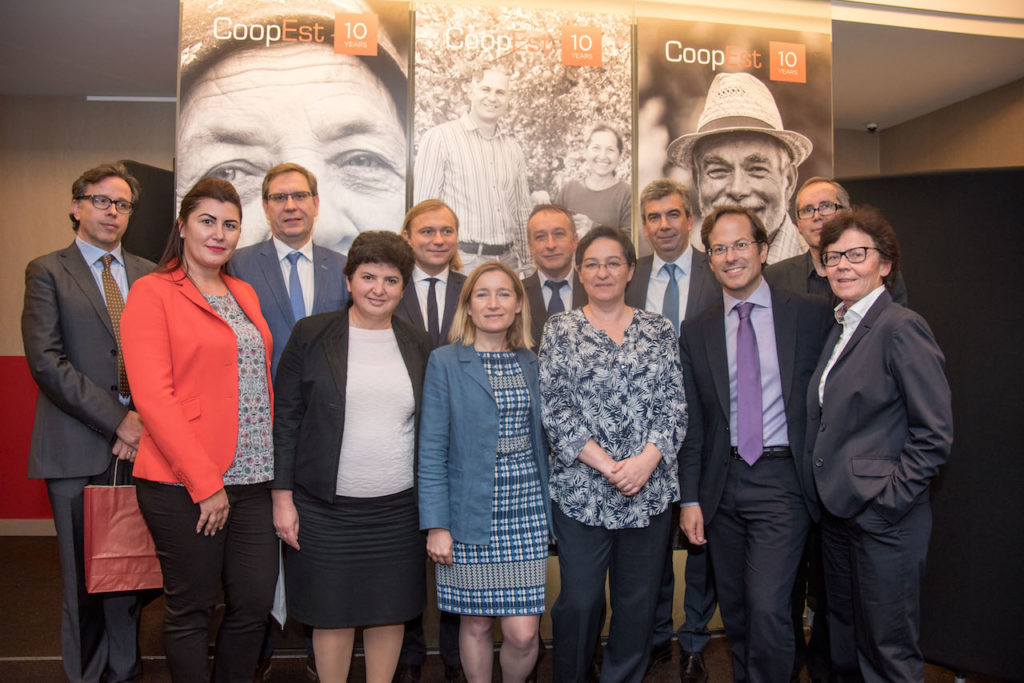
What were the most significant moments in the evolution of FEBEA?
Jean Paul Vigier. For me the three main moments were the creation of FEBEA, the implementation of the first instruments and above all the high interest it gathered since its inception. Starting from nothing, it was able to respond to a need and be recognized at European level. Despite the inevitable differences in culture and size, I have always appreciated everyone’s desire to be together and move forward.
Pedro Sasia. The main goal was precisely the ability to delimit the space of ethical finance in Europe, build dialogue dynamics with European institutions and establish alliances with other relevant actors.
Karol Sachs. With FEBEA we have shown that another way is possible. The enlargement of the members also shows that we were responding to a need. A country without banks and without finance is a catastrophe (as is a country with too much finance), because it means that small entrepreneurs do not have access to credit.

Fabio Salviato. For me one of the most important moments was the call to the Elysée for CoopMed, an investment fund dedicated to the development of the social economy in the Mediterranean countries (Tunisia, Morocco, Palestine, Lebanon, Turkey). FEBEA has been recognized as an important partner for the Mediterranean region. We have also done our part for Africa with the FEFISOL fund in which the European Investment Bank has invested about ten million euros. Finally, also thanks to our pressing, the first provisions on the circular economy and impact finance were issued.
Karol Sachs. I would also mention the Europe Active initiative and the integration of the microcredit movement at FEBEA level.
Pedro Sasia. Another goal was to provide the Federation itself with a structure and sufficient resources to be able to develop a strategy of constant growth, with its own team of professionals and an office in Brussels that allows us to offer our members various services: an open channel with European institutions, participation in research projects, training initiatives.
Karol Sachs. FEBEA is exciting. In the 15 years of FEBEA I learned a lot, there were ideas everywhere.
Ethical finance has moved from a niche to a leading role, especially in Europe. What has FEBEA done (and what will it do) to keep it credible?
Fabio Salviato. At the beginning it was a niche looked upon with curiosity by European institutions and by the Bank of Italy, which noted the high employment intensity on investments combined with the low failure rate. There has been a progressive recognition and, I would say, also an important result. Until 2000 a social cooperative was considered non-bankable: we allowed this system to have access to credit, even by traditional banks. We are talking about a world that in Italy makes up 3% of GDP but was penalized at the time because, apart from big names like Acli, Arci or Caritas, it was made up only of micro-organizations. Over the years, a dialogue has also been created with the European Commission on circular economy, impact finance, social impact bonds and so on. At first they were ideas, today they are laws.
Pedro Sasia. Despite the growth of the Federation, the fundamental values and the cultural perimeter of ethical finance have remained intact, with a letter of principles and a procedure for the entry of new members capable of preserving it from the temptations of green or social washing so common in these times. Lately we have emphasized the need to incorporate, within definitions, criteria and taxonomies on sustainable finance, not only the environmental element but also content on the social impacts and governance of the financed entities.

Fabio Salviato. FEBEA must help unmask greenwashing. Today its role could be even more important because in the meantime there has been a pandemic that has changed our way of life and the orientation of businesses and the economic-financial world. Companies, whether small, medium or large, must become virtuous. The PNRR (National Recovery and Resilience Plan) is all oriented in this direction, the evaluation of the SDGs is a constant, in a few years the carbon tax will come into force.
At what point is the dialogue between ethical banks and European institutions?
Fabio Saviato. If we have to say it all, it wasn’t easy at first. You had to make yourself known. Being in Brussels, it then became automatic to participate in events and create networks, such as the one on microcredit. It must also be said that FEBEA brings together thirty small to medium-sized banks: our great added value does not lie in numbers, but in the fact that there is a European federation, that there are thirty ethical banks. This means that it is possible to do finance differently, do it well and do it profitably.
Pedro Sasia. Today the European institutions have a clear interest in ethical finance, given that the Next Generation Eu funds are aimed at projects of social and solidarity economy, environmental protection, development cooperation, support for vulnerable groups … vocation and knowledge (a culture, in short) that is not easy to find outside of ethical finance.
Now the attention is focused on the post-Covid recovery and on several fronts it is asked that it be green and fair. Are we going in the right direction?
Jean Paul Vigier. I believe that the orientation towards the financing of ecological change is inevitable. FEBEA and its members are expected to become a major player in this field. There is a clear coherence between social action in Europe, the development of poor countries and ecological action.
Karol Sachs. In terms of proclamations, we are on the right track. In practice it is much more difficult. Today the problem is to relaunch activities. We need policies for green, local, participatory solutions. But we must always consider the practical consequences of actions, without closing ourselves off in an ideological thought. For example, if you want to reduce air flights, what happens to the tourism sector and the countries that live from it?
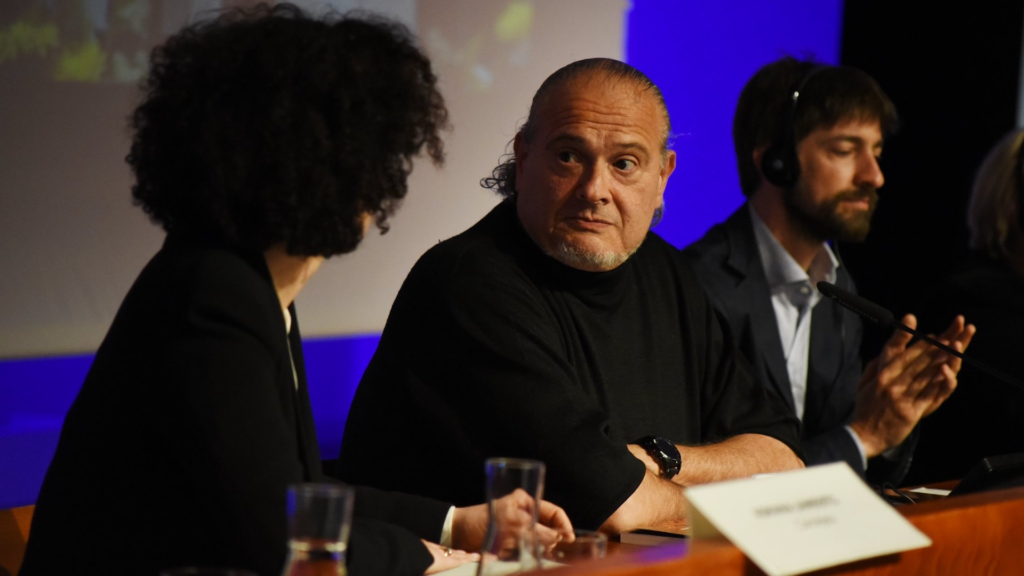
Pedro Sasia. Even after the 2008 financial crisis, politicians spoke of a “re-foundation of capitalism”, “a profound cultural transformation in our societies” and so on. The effects, in practice, are far from what was proclaimed. We risk that something similar will happen again this time. Talking about “green and fair” is a good start, but behind it there must be concrete decisions, revision of priorities, consideration of social actors usually far from decision-making centers, greater public awareness for responsible consumption that rewards those who adopt strategies oriented towards an authentic social and environmental sustainability …
Fabio Salviato. It is clear that the point of no return has been passed. It is not enough to plug the holes, we must change the management system of our businesses, companies or cities. The Italian entrepreneurs who have taken this path are 5%, and it is already something because before the pandemic it was 1%. The remaining 95% just want to maximize the investment, whatever the cost. At this speed, we will never reach the goals for 2050. The European institutions have given a great impetus but the will of the business world is also needed. Unfortunately, our civil society does not yet have a great environmental awareness; on the social front, on the other hand, we are, with one volunteer for every ten inhabitants. The Federation can act as a stimulus, indicating the direction to follow. We have already changed a piece of history, with culture and example.
Pedro Sasia. The commitment to authentic transformation, as FEBEA assumes, requires not only concrete financial proposals, but also cultural work and the political will to regenerate social spaces so that this transformation is possible.
What is your vision on the future of ethical finance?
Jean Paul Vigier. Ethical and solidarity finance is a still modest but real response to the economic changes taking place in the world. It allows savers to maintain control of their ethical choices in financial matters and therefore to participate in the development of new economic scenarios, giving meaning to their investments.
Pedro Sasia. In the short term, there are many opportunities for the development of ethical finance. On the one hand, some legislative and regulatory frameworks are gradually being consolidated, which recognize it as a socially valuable space, to be protected. There is also a growing interest in alternative financial models to those offered by large global operators. The institutionalization of ethical finance, with FEBEA, suggests a period of strengthening, with differentiated identity and high credibility. In any case, this process is strongly conditioned by the regulatory frameworks that can be developed at the regional level. Despite the multiple references to the need to preserve biodiversity in the financial ecosystem in Europe, the “one fits all” criterion continues to be used, which does not recognize the particularities of ethical finance and penalizes them in many respects.
Fabio Salviato. My expectation is that institutions, organizations, businesses, finance will be able to understand, and do their own, what ethical finance in Europe has managed to do. It is about changing a huge market: training is needed, finance capable of supporting change and a policy that accompanies this difficult but exciting time. This is the decisive decade. It is the decade in which the human being can recover from the excessive exploitation of the planet and allow future generations to live a peaceful and dignified life.
Karol Sachs. Transforming the global economy is very difficult. We need to advance and innovate, not punish. Ethical finance in this process has two objectives: to finance the small and local, according to people’s needs and environmental criteria; finance what traditional banks fail to finance, innovation.
